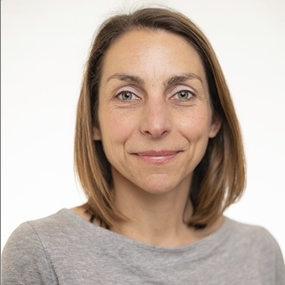Supporting anaesthetists returning to work during a pandemic

Consultant Anaesthetist, Royal Bolton Hospital
Returning to work (RTW) after a period of absence has been recognised as a challenging experience for doctors of all grades and specialties. Reports by the Academy of Medical Royal Colleges in 2012 and 2017 acknowledge that skills can decline after a break of only three months. In addition, a 2014 GMC report found that skills decline was greatest in the first few months of absence. The Royal College of Anaesthetists has also published guidance on supporting return to work, recognising that this needs to be managed and customised for a successful outcome.
Returning to a workplace in which so much has changed in response to COVID-19 is exceptionally testing. The challenges presented by the pandemic have been felt very keenly by those on a period of absence from work. Anaesthetists may have been redeployed for long periods to critical care or elsewhere and are anxious about returning to anaesthetic practice. Local RTW courses had to be temporarily halted or reduced and so opportunities to support those returning to work have been adversely affected.
With this in mind, a national working group was established by the College, and supported by the Association of Anaesthetists, to develop and deliver an online course for those returning to work. This drew on expertise from the National Return to Training Network formed by the College in 2019 with support from HEE, as well as individuals with experience of supporting returning to work in their area.
Meetings began in earnest in March 2021, with a view to provide an online RTW day, utilising principles of GASagain (Giving Anaesthesia Safely Again) and other regional courses. The course development was led by Dr Jill Horn (a course director for GASagain) and Dr Karen Kidner (RCoA SuppoRTT lead and a lead for the North West RTW course). Meeting anaesthetists with years of experience of supporting the RTW process from around the UK was invaluable; we were able to build on each others successes and compare pitfalls to avoid.
There were obvious challenges: the best feedback from face-to-face courses related to the ability to get ‘hands-on’ again with simulated clinical scenarios and skills practice but this would be impossible virtually. The loss of physical interaction between peers was also a disadvantage.
Returners gain huge support from their contemporaries on face-to-face RTW days by being able to share worries or concerns. Groups are usually brilliant at supporting each other in this regard. How could we replicate that virtually? Additionally, the anxiety of technology failure, time management, content delivery and monitoring online chatrooms were problems that were new to those of us developing and running educational courses.
However, we had a fantastic and supportive team of faculty and were able to use a variety of mechanisms to alleviate our concerns. The group made recorded scenarios to bring some reality to the sessions (those dropping saturations!) Digital polls were used so that participants could contribute their concerns anonymously and, most importantly, incredible support from Lucy Kerr at the College who managed the entire online process expertly. Despite the incredibly short time frame, the first course was held successfully on 29 April 2021.
The next Returning to Work in Anaesthesia course is already scheduled for 7 July 2021 so if you or someone you know might benefit, please be sure to join us. We can’t wait to see you there!
Dr Amy Hobbs
Dr Gemma Phillips
